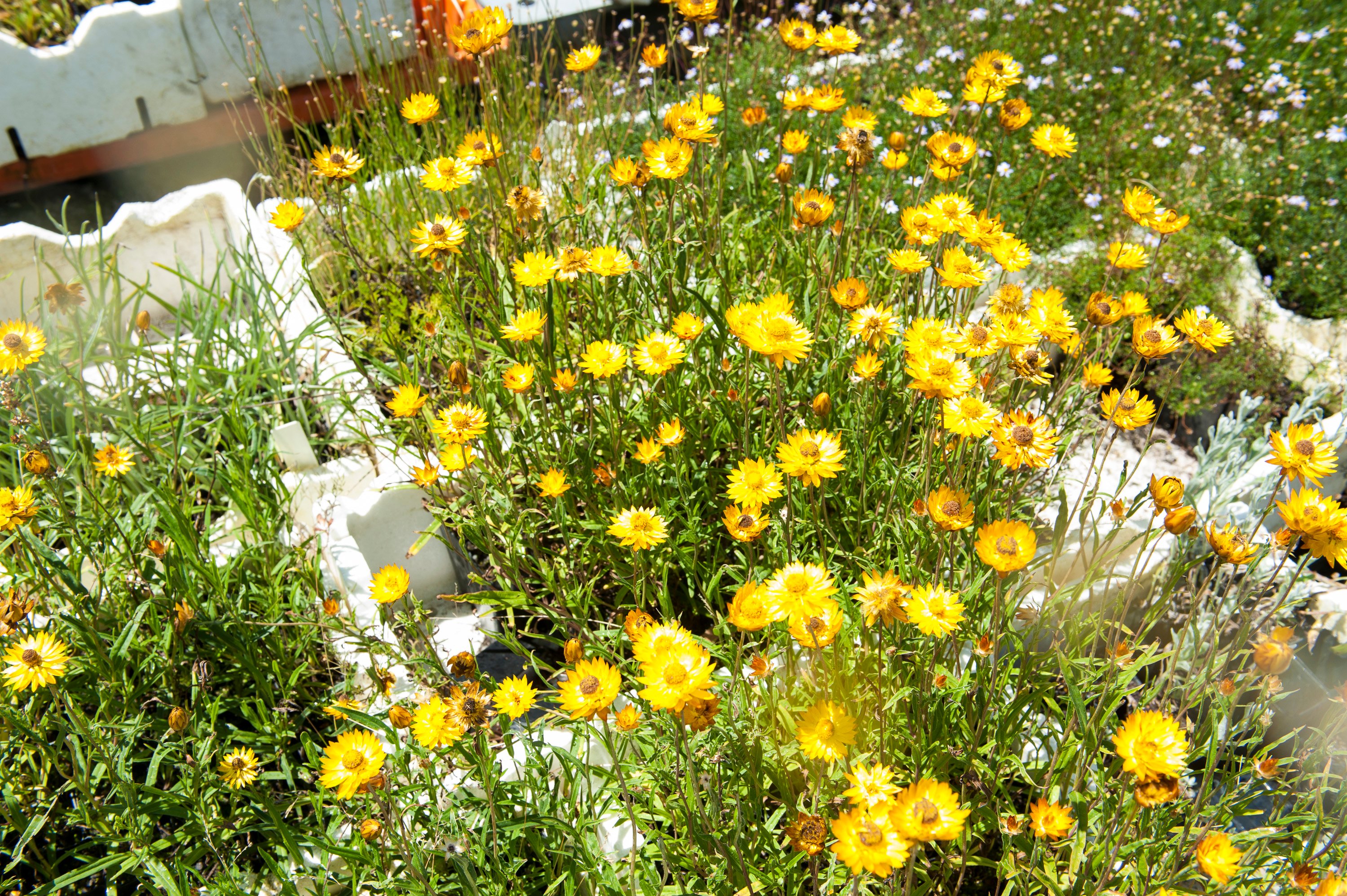Indigenous plant nursery
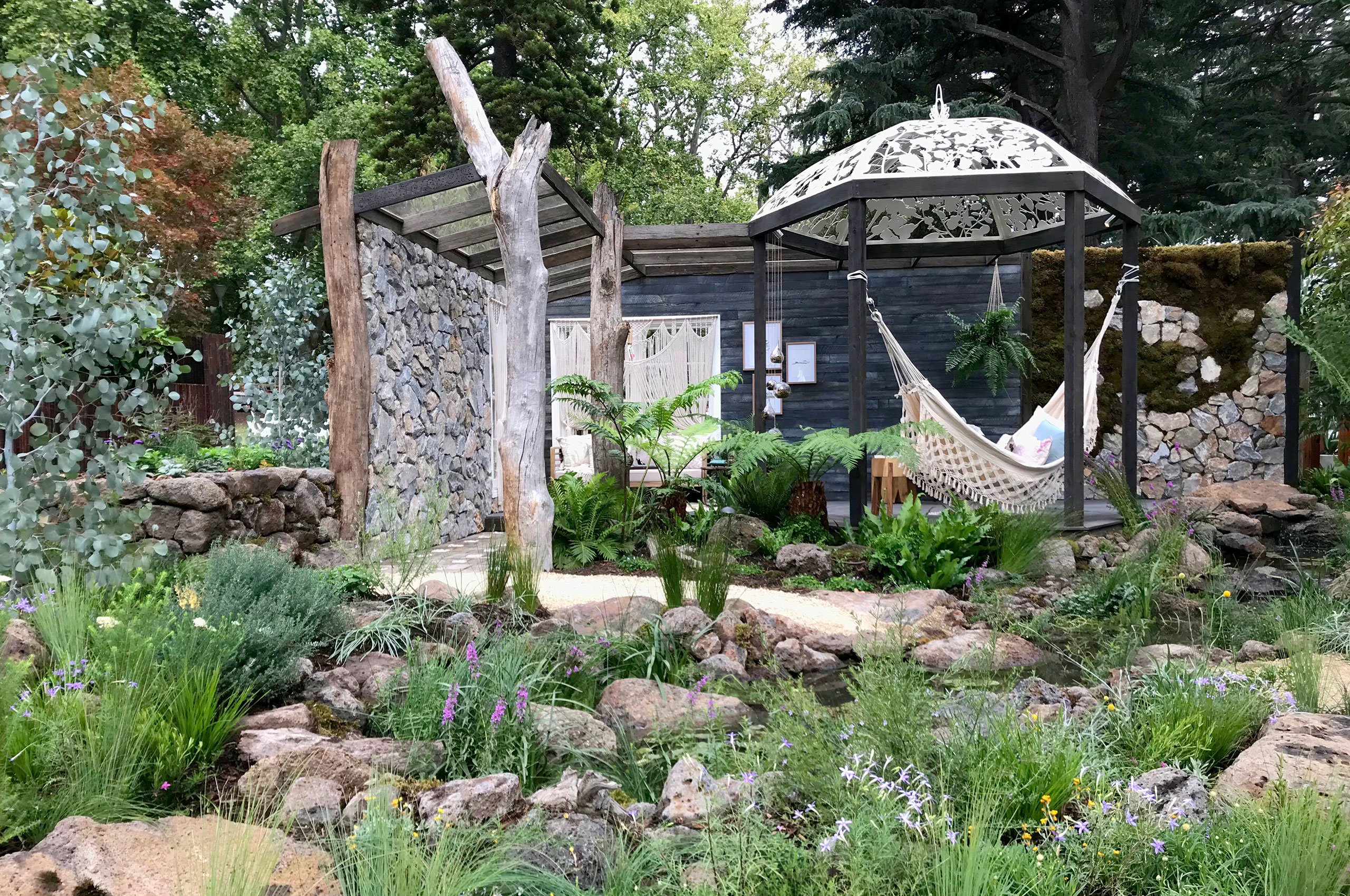
We supply over 300 species of trees, shrubs, groundcovers, climbers, grasses, herbs and wetland plants to local councils and other land managers, schools, landscape professionals, other retail nurseries and backyard gardeners for projects of all sizes.
Nursery
We specialise in indigenous species from the middle and lower Yarra catchment of Melbourne; with collection areas extending from the Kinglake escarpment in the north, to the grasslands in the west and Dights Falls in the south.
Our plants are best suited to the following municipalities:
- Darebin
- Banyule
- Nillumbik
- Whittlesea
- Hume
- Murrindindi
- Manningham
Retail Shop
We are located on the La Trobe University, Melbourne (Bundoora) campus. Access is via La Trobe Ave (near the roundabout on Main Drive).
Opening hours
Sunday to Friday, 10am-3pm
Some public holidays may affect our opening hours.
Contact us
T: (03) 9479 1206
E: wildlife@latrobe.edu.au
Our Retail Shop also sells a range of nesting boxes to provide supplementary habitat for native wildlife.
If you have a wish list, please email us to discuss making an order.
Why choose local indigenous plants?
Indigenous plants have adapted to the local conditions over thousands of years. This means that they are suited to the soil type, rainfall and other conditions.
Compared to native plants (ones that occur elsewhere in Australia), indigenous plants have an advantage as they:
- adapt to nutrient poor soils, no need to provide additional fertilisers
- require very little pest management intervention as they adapt to the grazing and browsing pressures of local wildlife. Many respond favourably to regular light pruning
- require minimal watering, most are drought tolerant and many require annual drying/wetting cycles
- are great for soil stabilisation, most are deep rooted
- create a great habitat and food resources to attract birds, butterflies and other beneficial native pollinating insects and wildlife such as frogs and lizards to your garden
- preserve local biodiversity and retains the local aesthetics.
- reduce the chances of genetic pollution of local flora populations which are often compromised by being restricted to small remnant patches.
- eradicate the potential problem of plants going bush and becoming weeds
- have interesting forms and attractive flowers.
All of our plants are propagated and grown onsite from seeds and cuttings collected under permit from our own seed orchards or our wider collection area. We have over 300 species available and propagate over 100,000 plants a year.
Prices*
| Tubestock | $3.55-$6.90 |
| 6" pots# | $11-$14.24 |
| Hiko^ | Available by request |
* Wholesale prices available for orders over 500 plants
# Not all species available in this container size
^ Available for some species on request
If you would like a large number of plants or have a particular wish list in mind, please email us at wildlife@latrobe.edu.au to find out about availability and making an order.
Please note, please allow up to 2 weeks to complete your order during the peak planting seasons (autumn to spring) or for large orders.
What size is best?
Where possible, we recommend tubestock over larger plants. This is because tubestock have a higher survival rate.
Benefits
- Better root systems with good root training and less likely to suffer from being pot bound as roots can only grow downwards rather than wrap around the inside of a pot as is often the case with larger round pots
- No need to dig a very large hole and as a result there is much less soil disturbance meaning less chance of weed problems through available nitrogen
- Root systems develop much better and plants establish much faster than larger pots that often suffer transplant shock
- Much less time and water to establish plants, just a few weeks for tube stock compared to many months for advanced plants
Plus
- Tubes are only a few dollars per unit meaning they are great value for money!
- Tubes are small, containing less plastic and creating less energy to produce and ultimately less waste
Provenance refers to adaptation of plants to local environments
Over time, plants evolve to suit their local conditions and over many generations those that can tolerate the local conditions persist and those that don’t will fail to pass on their genes to subsequent generations. This results in local adaptations within a species increasing the ability for a species to persist in sub-standard conditions such as soil compaction, changes in pH, salinity and water gradients, nutrient levels etc.
So even though a species may occur across a range of different ecological communities it is best to select plants that have evolved in a certain zone. For example, Microlaena stipoides grows in many different environments from montane forests to coastal scrub however it would be irresponsible to plant the coastal form in the mountains as it will not be adapted to such cold conditions and wet soils as is often experienced in these forests. The coastal form would most likely be adapted to well drained sandy, nutrient deficient soils. If the plants did survive long enough to flower, they could infect the local population with genetic pollution that could cause the demise of all hybrid progeny.
The term provenance can be somewhat subjective. How far away plants should be sourced for any given project will depend on a number of factors.
- How far away the closest remnant population of a particular species currently occurs
- How many individuals are in that population
- Protection or legislative measures in place for collection of material
- Timing
- Geology and catchment boundaries
- Whether there is a captive population of extinct local individuals in a nursery somewhere
- How plants are pollinated has a big impact on how far away propagation material can be collected ie. plants that are pollinated by flying insects, birds and bats will only spread their genes as far as those insects can travel, which is generally less than a few kilometres. Plants that are pollinated by terrestrial insects and mammals may not spread their pollen further than a few metres. Plants that are wind pollinated such as many of the grasses and Acacias and to some extent Eucalypts can send pollen many hundreds of kilometres on windy days. It is generally accepted that most aquatic plant genetics are somewhat homogenous, particularly within catchments. Water birds and flooding can spread aquatic plants far and wide across the landscape.
Nangak Tamboree Wildlife Sanctuary staff determine how far away we collect our plants based on a number of factors:
- What is the closest known viable population of a particular species?
- Which pollination syndromes act upon that species?
- What are the catchment boundaries from which this species occurs?
- What geology and landform boundaries affect this species?
It is not always possible to supply indigenous plants of local provenance to all locations as many local forms have been destroyed and become locally extinct, so the only way to get these species back is to source material from further afield with environmental variables that best match the location that the plants will go into.
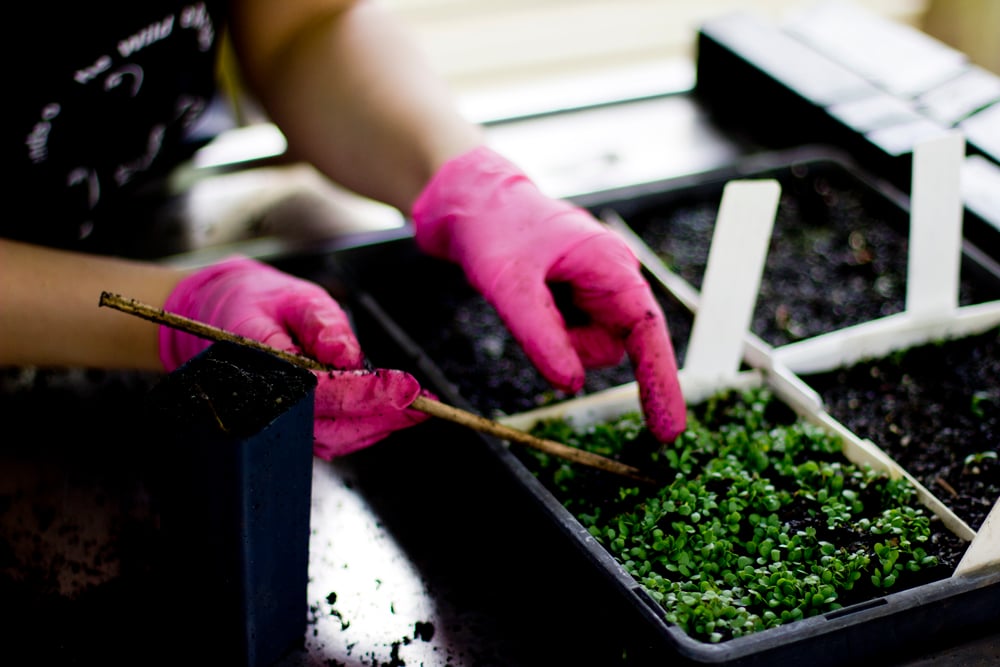
For large wholesale orders we recommend that you plan early and order ahead of time. We don’t always have stock of all species available at all times; but can grow plants specifically for your order given enough lead time. As soon as you know what you want, tell us!
You can place an order 12 months ahead of when you plan on delivering a project.
To place an order, email your species list and quantities to wildlife@latrobe.edu.au
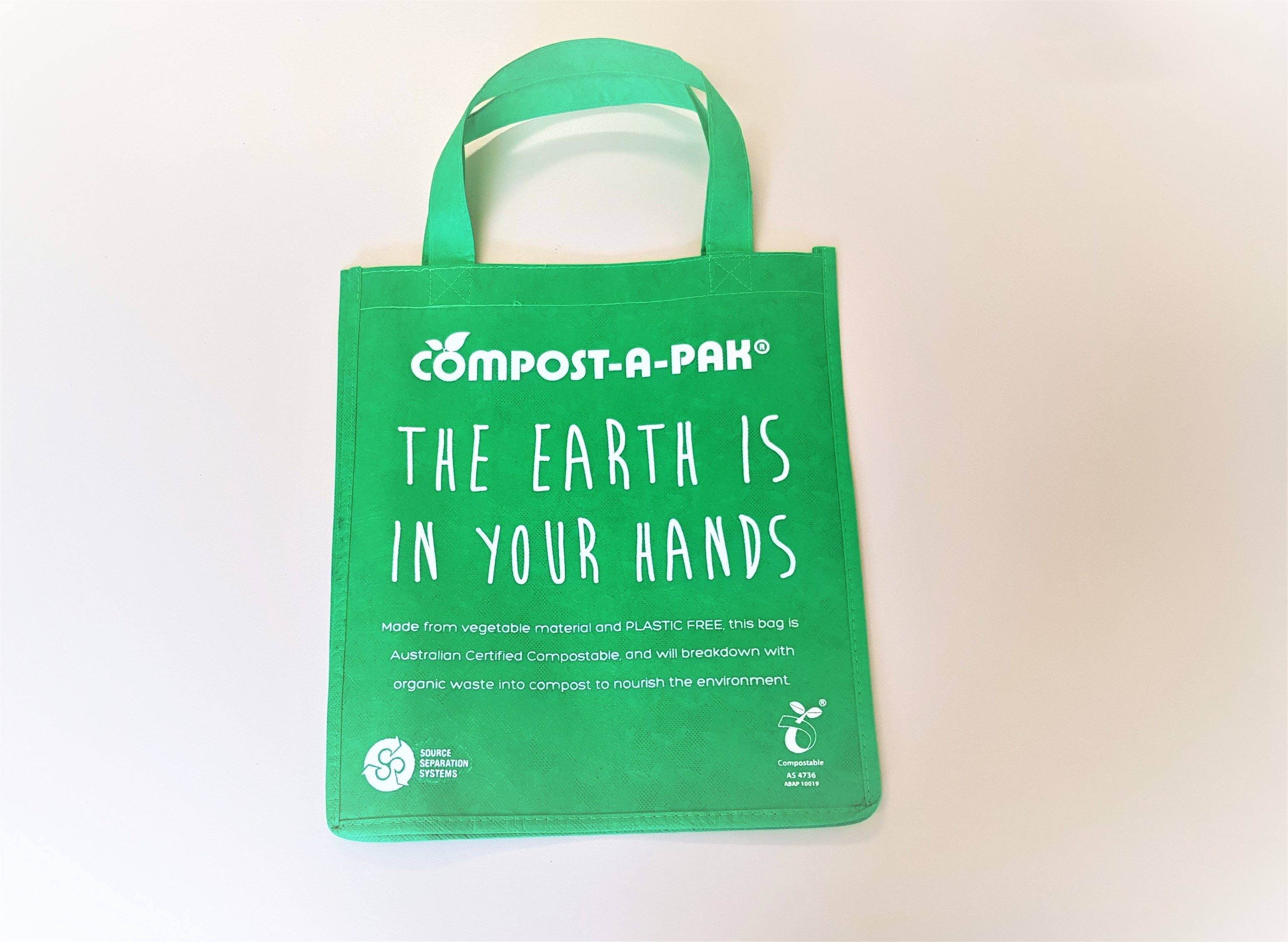
Like many other retailers, we have decided to no longer supply single use plastic bags for customers. We encourage you to bring your own bag or box for your plants.
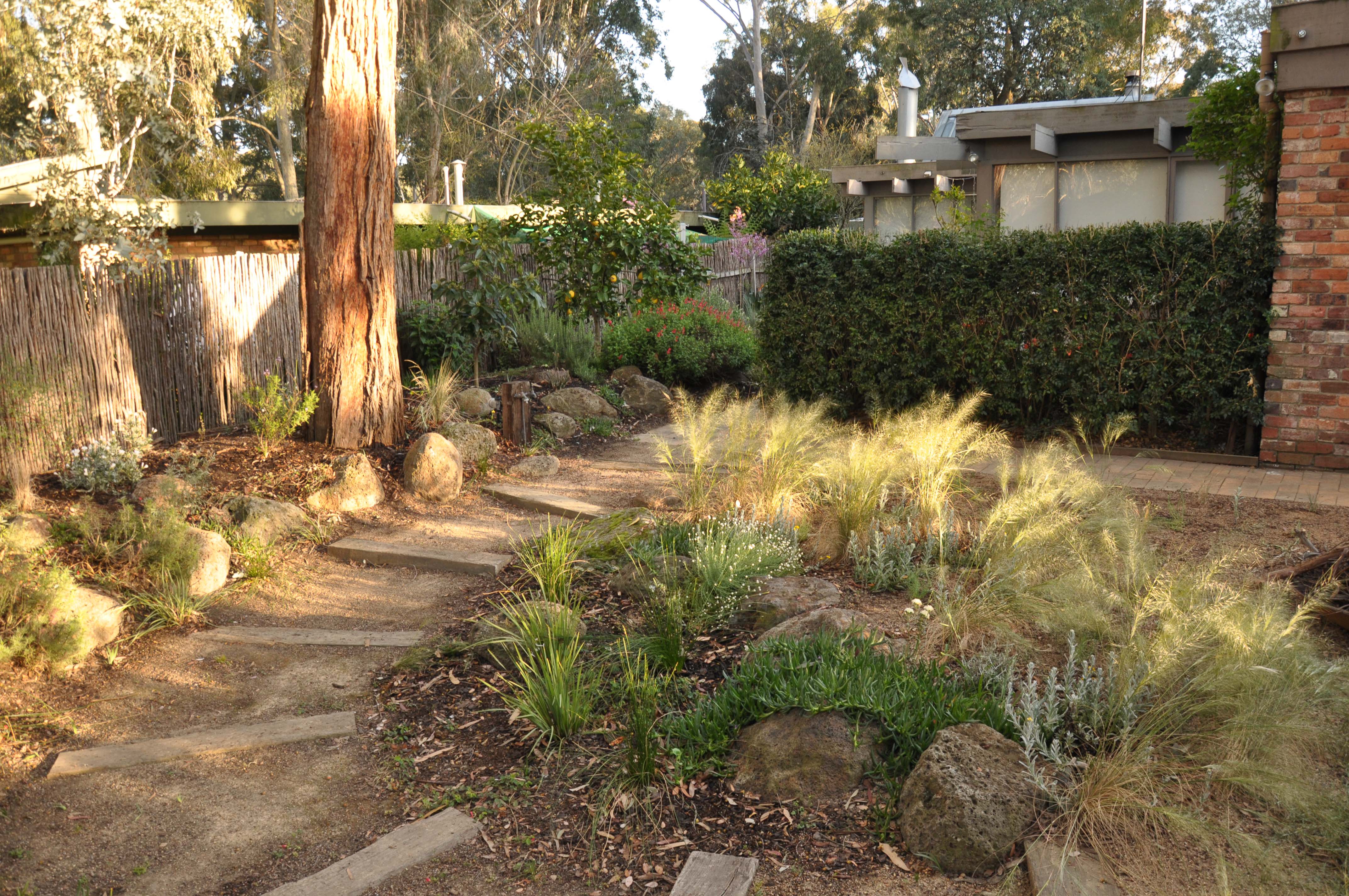
Many of the plants that you will find in our Retail Shop can also be seen growing in their natural environment within the Sanctuary itself. Go for a self-guided walk and imagine how you could use the plants in your garden.
We also run Backyard Biodiversity workshops to provide practical advice on how you can create wildlife habitat within your own backyards. Register your interest in our Citizen Science and Workshop program to stay up to date or follow us on Facebook or Instagram.
Our friendly retail staff are also available to provide general advice and guidance, however depending on how busy we are, their time may be limited.
For more information about indigenous plants, we recommend Flora of Melbourne by Marilyn Bull (available for purchase in our Retail Shop) or the Flora of Victoria website.
Please note – We are not able to provide consultancy services but there are numerous indigenous focused landscape architects in the local area
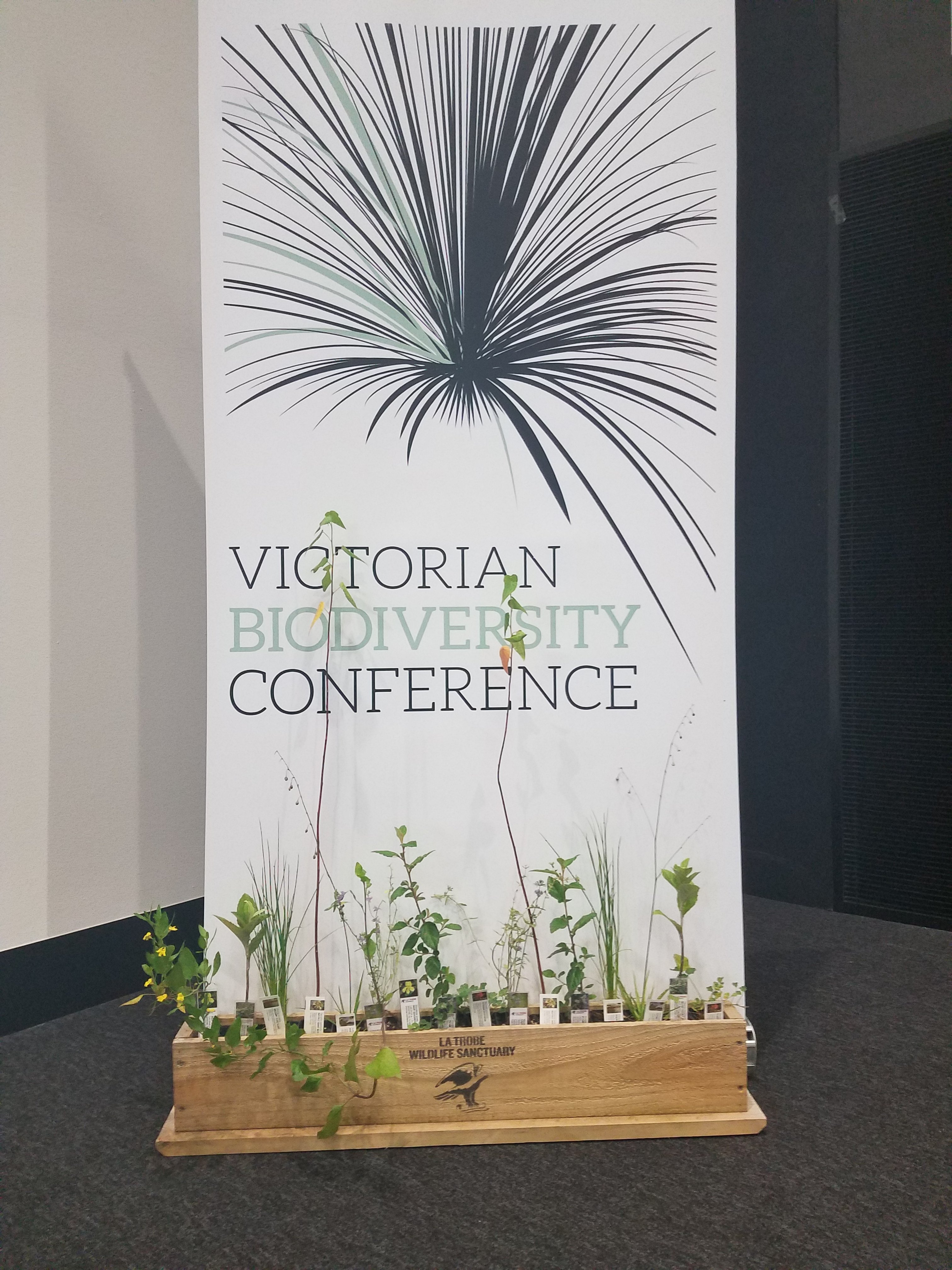 Soften your event space with display boxes of indigenous plants. We have two options available 620x300mm or 810x95mm.
Soften your event space with display boxes of indigenous plants. We have two options available 620x300mm or 810x95mm.
We can also put together gift bags which make great sustainable speaker or thank you gifts.
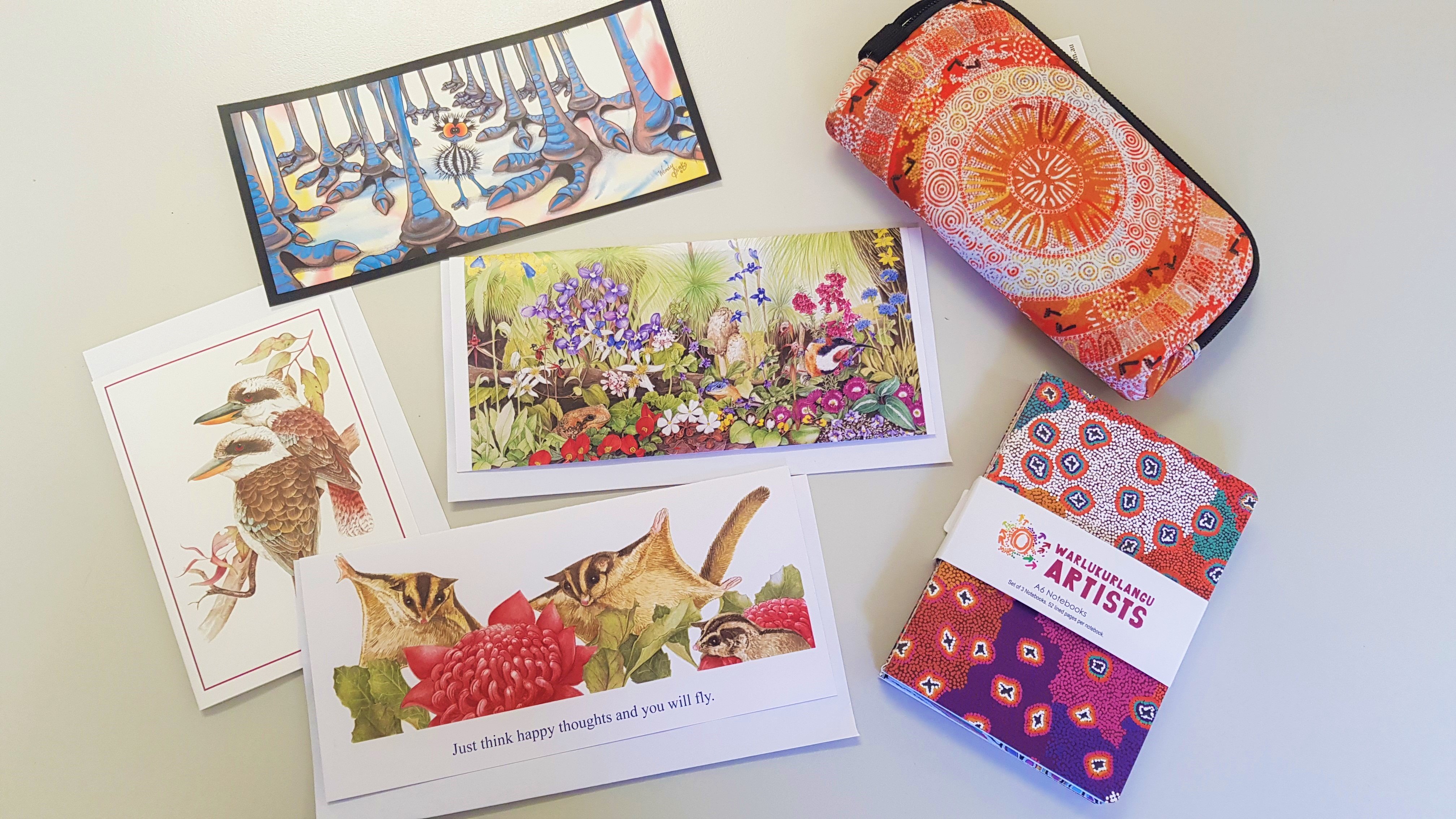 We also sell a range of other garden related products and giftware. These will change periodically, so make sure you pop in and see what is available!
We also sell a range of other garden related products and giftware. These will change periodically, so make sure you pop in and see what is available!
- Potting mix
- Mulch
- Tree guards and stakes
- Weed mats
- Ceramic and terracotta pots
- Greeting and post cards
- Plant id books and field guides
- Colouring books
- Gift ware
We are regularly asked for donations of plants and nesting boxes by schools, kindergartens and community groups.
We aim to support as many groups as possible and have recently developed new guidelines for assessing these requests. Each request will be assessed based on several factors including aims of the project, community involvement and current availability of suitable plants or nesting boxes.
The following restrictions apply:
- Maximum of 2 boxes of plants (104 tubes); or
- Maximum of 2 flatpack nesting box kits
Please note, previously we have donated plants for schools/groups to on sell at fetes etc as a fundraising exercise. We have made the decision to instead donate directly to on ground biodiversity enhancement projects that engage the students/children or local community.
If you would like to submit a donation request, please complete this form and email it to wildlife@latrobe.edu.au. Allow a minimum of 3 weeks for us to assess your request.
